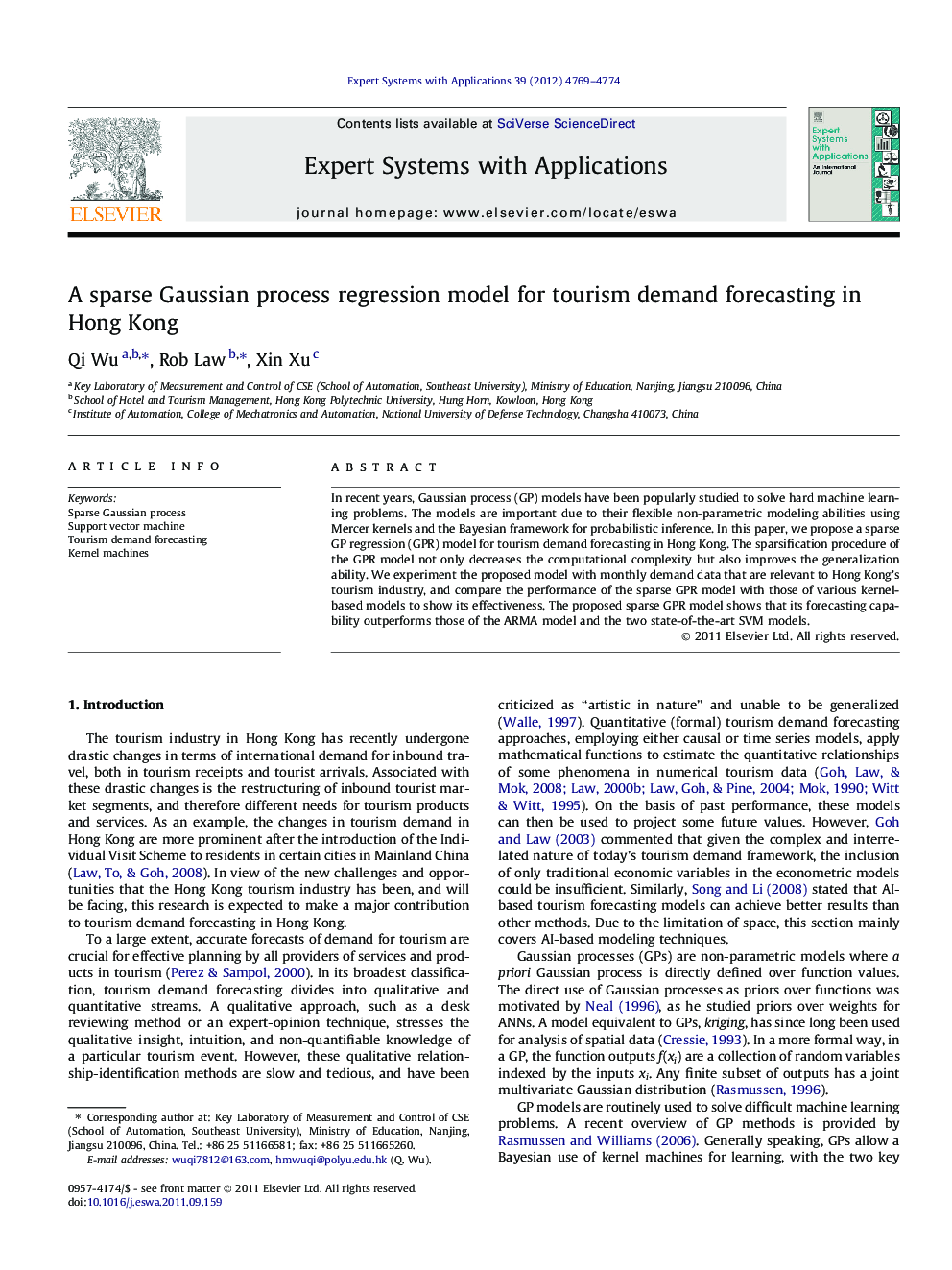| Article ID | Journal | Published Year | Pages | File Type |
|---|---|---|---|---|
| 384812 | Expert Systems with Applications | 2012 | 6 Pages |
In recent years, Gaussian process (GP) models have been popularly studied to solve hard machine learning problems. The models are important due to their flexible non-parametric modeling abilities using Mercer kernels and the Bayesian framework for probabilistic inference. In this paper, we propose a sparse GP regression (GPR) model for tourism demand forecasting in Hong Kong. The sparsification procedure of the GPR model not only decreases the computational complexity but also improves the generalization ability. We experiment the proposed model with monthly demand data that are relevant to Hong Kong’s tourism industry, and compare the performance of the sparse GPR model with those of various kernel-based models to show its effectiveness. The proposed sparse GPR model shows that its forecasting capability outperforms those of the ARMA model and the two state-of-the-art SVM models.
